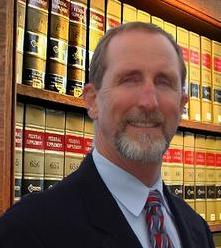Campaign finance reform – no half measure
May 7, 2017
OPINION by STEW JENKINS
One of my Grandfathers, Newton Jenkins, started his political career as a Republican Chicago Alderman back when Big Bill Thompson was mayor. According to family history, two gentlemen lived with the family at their home. They were proud of their titles: henchmen. They not only scoured the ward to find out who needed work and who need city services, but brought bags with them to collect the stream of contributions necessary to maintaining Newton’s political operations.
Influential as Big Bill Thompson was, the actual power behind the Republican machine that ran Chicago was another prominent Republican, Al Capone. Newton Jenkins broke with Thompson and Capone as the depth of their depravity became evident, turning his political operation, as a progressive Republican, to oust Thompson and elect Democrat Tony Cermak in 1931.
Cermak, with the Kelley-Nash Democratic organization, worked to drive Capone’s organization out of Chicago. You will understand that grampa, and his henchmen, were packing when they traveled around town. Mayor Cermak was assassinated part way through his term. Even the polling places had to be protected with armed police officers throughout the city. My branch of the family became Democrats.
Decades later, I would ask my grandmother if that sea change had made a difference in Chicago’s corrupt climate. She said it did not end the bootlegging, the houses of ill repute, or the bagmen scouring the neighborhoods for campaign contributions and folks in need of favors. But it did stop the massacres of political opponents and supporters at election time and on holidays like Valentine’s Day.
Instead of elections being decided by bullets and pistol-whippings, they improved to be decided by a candidate’s power to raise money and deliver voters to the polls. And turnout was outstanding, at least in Grampa’s ward.
Fast forward to the 21st century. Voter turnout is tragically low. And why? Because voters see that national and state elections are solidly in the hands of wealthy donors and corporations.
Candidates for office tend to be millionaires, or billionaires. Only labor unions have been in a position to serve as a modest counterweight of people-power to the oversized influence wielded by the few wealthiest Americans. Rather than empowering the people, campaign finance “reforms” have generally increased the power of the wealthy. It is past time to do something about it.
All politics is local. And local politics is where good ideas have the chance to be tried out before going national. So, it was heartening on May 2 to see the folks at the Citizens’ Congress pushing the San Luis Obispo City Council for the second time in two years to consider a public campaign finance option.
Tragically, even with Councilwoman Pease’s and Mayor Harmon’s support, they could not get the proposal on an agenda for consideration, improvement or a vote. Even the U.S. Supreme Court takes in matters to be decided if a minority sees it worthy of consideration.
Instead of trying out the model of public campaign that Maine and Arizona have pioneered, which have survived most court challenges of their elements, my friend Bill Ostrander has been pushing (with the Citizens’ Congress) a voucher system borrowed from Seattle’s new untested model, where every city registered voter gets a voucher which they can give to one candidate, or divide among the candidates as they choose, in each city election. The voucher cannot be cashed or sold, but is turned by the city clerk into campaign cash.
Like the Maine and Arizona public finance systems, the Citizens’ Congress proposal depends on candidates voluntarily signing up to the program, covenanting not to take any private contributions in exchange for eligibility to take the vouchers.
Both models depend on a candidate giving up the constitutionally protected First Amendment right of the candidate to accept contributions, in exchange for access to the public financing. The Citizens’ Congress proposal would give every voter one $20 voucher. It also limits independent expenditures to $500 on city races, and it puts a stranglehold on contributions to candidates over $300.
One need only look at Randall v. Sorrell, 548 U.S. 230, authored by liberal Justice Breyer in 2006, to see that both of these latter elements are unconstitutional. Neither will survive a court challenge. And, why should they?
If you like Heidi Harmon, and independently want to support her by purchasing a three-month CalCoastNews banner ad, or a single one-quarter page add in the Tribune (both about $1,275), your personal free speech rights are completely throttled by the $500 limit on independent expenditure.
As to candidate contributions, Justice Breyer noted that “contribution limits … implicate fundamental First Amendment interests, namely, the freedoms of political expression and political association.” He went on to explain, as the court struck down a $300 limit on contributions, “that contribution limits might sometimes work more harm to protected First Amendment interests than their anticorruption objectives could justify.”
Justice Breyer observed that “the lowest limit that the U.S. Supreme Court has previously upheld, was the limit of $1,075 per election (adjusted for inflation every two years).” By 2006, Justice Breyer noted adjustments for inflation had made this “lowest” acceptable limit on contributions $1,275.
So, the limits on candidates who refuse the public financing option will be struck down, eviscerating the campaigns of those depending on what can be generated from voters’ $20 vouchers.
Still, Bill Ostrander and the Citizens’ Congress should be supported in their effort to bring a public campaign finance proposal to the City of San Luis Obispo. And the vouchers, given to every voter for making his/her contributions is an intriguing way to empower the voter of SLO (instead of outside developers and special interests) to positively exercise “political expression and political association” in city elections.
But at present, the proposal’s major feature – the wretchedly small $20 voucher – amounts to a half measure that is not big enough to attract candidates and wean them off constant fundraising. Particularly when in every city election there are at least three seats on Council that are in play.
What voter will think that giving $6.67 to each of his/her favorite three candidates amounts to political expression or association? And what candidate will think that enough to put a drop in his/her need for getting his/her message out to voters?
Councilwoman Christianson’s suggestion that this is not the right time or the right place for campaign finance reform is just flat wrong. There is no better place and there is no better time to institute a public finance city ordinance; particularly before she starts collecting developer contributions for the next council election.
But to make the program viable, the voucher will need to be increased in value four-fold to attract voters and candidates to use the public finance system. To preserve viability, vouchers must increase in value with the cost of living. And the unconstitutional portions of the proposal must be pruned.
Advances in democracy take thoughtful courage. Council members, like Christianson, dependent on the big developer donations will never change the current system. They like it. A citizens’ initiative is the only way that this, or any, public finance ordinance will ever be adopted in the city of San Luis Obispo.
Stew Jenkins is a San Luis Obispo County Liberal Democrat who supports the rights of working people to organize unions, growing the local economy through project labor agreements, the right of all people to health care and equal dignity.
He is an attorney practicing in San Luis Obispo since 1978. Jenkins’ handles tax payer suits, municipal law, estate planning and family law.









The comments below represent the opinion of the writer and do not represent the views or policies of CalCoastNews.com. Please address the Policies, events and arguments, not the person. Constructive debate is good; mockery, taunting, and name calling is not. Comment Guidelines